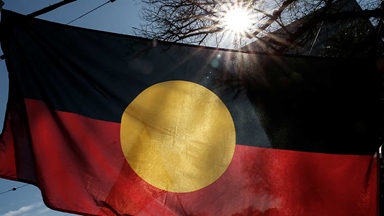Loading component...
At a glance
The theme of this year’s NAIDOC Week, celebrated on 2 July to 9 July, has been chosen to reflect the significant cultural contribution made by older members of the community.
“‘For Our Elders’ represents an acknowledgement of the Elders both present and past, who have shaped the way for our generation to be courageous in our pursuit of reconciliation,” says Shane Miller ASA, a Jagera man.
Miller is a graduate accountant at Twin Towns Clubs & Resorts in Tweed Heads, located on the New South Wales–Queensland border.
Miller is also the deputy chair of the CPA Australia Indigenous Advisory Group. As an accountant, he says, “‘For Our Elders’ is a call for Indigenous accountants and networks like the Indigenous Advisory Group to take action, do our part to boost Indigenous representation in the accounting profession and provide community support.”
Katina Law FCPA, a Worrorra Walmajarri woman, is mindful of the struggles that Elders have endured. “They have fought for equality and, as an accountant, I continue the fight for financial independence and economic participation for all Indigenous Australians,” Law says.
In 2015, Law co-founded IPS Management Consultants – Australia’s largest independent majority First Nations-owned consultancy. She also became the first Indigenous female chair of an ASX-listed company in Australia in 2017.
Miller also takes great pride in carrying the torch. “Serving as the deputy chair of CPA Australia’s Indigenous Advisory Group allows me to act as part of the change and see that the steps taken by Elders past and present are continued,” he explains.
CPA Australia’s response to the Uluru Statement from the Heart
Reconciliation journey
To Miller, reconciliation is at the heart of this year’s theme. “Our Elders have courageously paved the way for the opportunities and progression of Indigenous reconciliation. Their sacrifices, resilience and perseverance have paved the path for us to continue to walk,” he says.
“Accountants are at the forefront of modern and contemporary business. I believe it is our duty to follow in the footsteps of our Indigenous Elders and pass on our knowledge and teaching practices to those in our First Nations communities,” he says.
This could come in the form of remote business support, navigating financial literacy or providing simple financial tools that are not always available or accessible to First Nations communities, Miller adds.
CPA Australia’s Innovate Reconciliation Action Plan
How accountants can contribute
Law says there are many ways for accounting and finance professionals to make a difference.
“We know that many Indigenous people have low levels of financial literacy. This affects people personally, in how they manage their money, but it also affects our people and our Elders as they carry out their roles as native title holders and as members of boards of Aboriginal community-controlled organisations,” she says.
“Accountants can work with individuals to improve their financial literacy, their personal finances and assist them in making sure their taxes are up-to-date,” says Law. “They can work with organisations to improve the financial understanding of the board members and help them navigate investment strategies and budgets for their organisations.
"As accountants, we can genuinely help to improve the lives of Indigenous people by providing our services in an accessible and unbiased way."
They can work with Indigenous businesses to help them understand their cash flows and assist them in accessing capital.”
Miller recommends reaching out to current Indigenous accountants and giving support to the Indigenous community. Encouraging the next generation of Indigenous students to become accountants is another way accountants can help.
Law adds, “As accountants, we can genuinely help to improve the lives of Indigenous people by providing our services in an accessible and unbiased way.
“I encourage all members to think about how they can assist, whether through volunteering on a board or providing pro bono services or by serving their Indigenous clients with integrity.”

